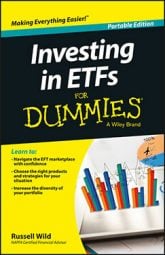Slow-growing economies (such as India's, whose stock market has lately left China's in the dust) generally make for better stock investments! You would think that a fast-growing economy would be the best of places to invest. And yet there is more to stock returns than the growth of a national economy. (Just ask those investors who poured money into China several years ago.)
In fact, the mind-blowing conclusion of a handful of recent studies is that the reverse is true: If you look at the stock returns of various national markets over the past 100 years, you actually find an inverse relationship.
There are several possible explanations for this anomaly. Some say that rapid economic growth is attributable more to small, entrepreneurial businesses rather than to larger, publicly held corporations. Others have suggested that the fruits of economic growth often don't go to shareholders. Instead, those fruits may go to labor or consumers or (with the United States being a prime example) top executives and option-holders.
Another possible explanation is that the prices of stocks in fast-growing economies (just like domestic growth stocks) often start off overpriced due to higher-than-reasonable expectations. Stocks of slow-growing economies (just like value stocks) may tend to be underpriced.
The moral of the story is to spread your investment dollars around the world. Don't think you can pick countries that will outperform by using projected growth rates as your crystal ball.

